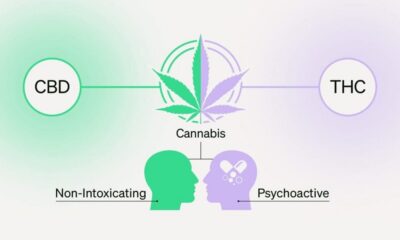Law
How To Prove Negligent Hiring In Trucking Accidents

Proving negligent hiring in trucking accidents can feel overwhelming, but you can tackle it with the right knowledge. You may wonder why it matters. Negligent hiring means the trucking company failed in its duty. They put an unsafe driver on the road, risking lives. A truck accident lawyer will be crucial in this process. They help gather proof and fight for accountability. Key evidence often includes the driver’s records, training details, and any prior incidents. Companies must perform thorough checks on drivers. Your task is to show they did not. Focus on finding gaps in their hiring process. If you suspect negligence, act quickly. Time-sensitive records may disappear if you wait. Families affected by trucking accidents face emotional and financial burdens. Your truth matters. Stand firm in uncovering the facts and holding responsible parties accountable. By doing so, you contribute to safer roads for everyone.
Understand Negligent Hiring
Negligent hiring occurs when a company hires a driver without proper checks. This can mean not verifying criminal records, skipping background checks, or ignoring past unsafe behavior. It’s crucial to understand these terms. Recognizing the difference between responsible and negligent hiring practices can make all the difference in your case.
Gather Critical Evidence
Collecting evidence is vital. Begin with obtaining the driver’s history. Look for past violations or complaints. Training records are just as important. They can reveal if the driver was adequately trained or certified. Other documents to gather include:
- Employment application forms
- Background check reports
- Drug and alcohol test results
Details from these documents can help to build a strong case. Missing or incomplete records can support claims of negligence.
Get Familiar with Industry Standards
Understanding industry standards helps prove negligence. Federal regulations require trucking companies to adhere to strict hiring practices. For instance, the Federal Motor Carrier Safety Administration mandates that drivers have a clean driving record and pass regular drug tests. If a company fails in these areas, it strengthens your claim.
Discovering the Hiring Process
Investigate how the company hires drivers. Ask questions about their procedures. Did they verify licenses? Was a thorough background check completed? Understanding their process can show where they cut corners, leaving room for negligence.
Comparing Company Policies
Compare the policies of different trucking companies. A data table can help illustrate differences in hiring standards:
| Company | Background Check | Training Requirements | Drug Testing |
| Company A | Comprehensive | Standard | Regular |
| Company B | Basic | Minimal | Occasional |
| Company C | None | None | Infrequent |
These differences can highlight negligence. Companies with lenient policies may not prioritize safety.
Taking Legal Action
After gathering evidence, the next step is legal action. Consulting with a legal expert helps set the direction of your case. They assist in filing claims and navigating complex legal procedures. Timing is essential, as delays can limit access to crucial evidence.
Impact and Prevention
Negligent hiring in trucking affects everyone on the road. Recognizing signs and holding companies accountable encourages safer practices. By pursuing justice, you help prevent future accidents. This brings peace to affected families and promotes a safer community for all. Never underestimate the impact of your actions when safety is at stake.
Conclusion
Negligent hiring in trucking accidents is serious. Acting swiftly and gathering proper evidence make all the difference. Stay informed about regulations and standards. Compare hiring practices and listen to legal experts. Your efforts push for accountability, creating safer roads. Everyone deserves peace of mind when traveling, and your actions contribute to this important goal.
Law
Kerry Hudson Gainesville Law: Your Trusted Legal Advocate in Gainesville

Introduction
When life presents unexpected legal challenges, having a knowledgeable and compassionate attorney can make all the difference. In Gainesville, Kerry Hudson Gainesville Law has built a strong reputation for providing dependable legal solutions backed by professionalism, dedication, and years of experience. From family disputes to criminal defense and personal injury claims, Kerry Hudson and her team are committed to protecting the interests of every client they serve.
Read more – bestlawyerhub
Why Kerry Hudson Gainesville Law Stands Out
Legal representation is more than just handling paperwork or appearing in court—it’s about trust, communication, and advocacy. Here’s why so many Gainesville residents turn to Kerry Hudson Gainesville Law:
-
Tailored Legal Strategies – Every client’s situation is unique. Kerry takes the time to understand the details and create customized solutions.
-
Strong Experience – With a broad background across multiple practice areas, Kerry Hudson brings insight and confidence to every case.
-
Open Communication – Clients are kept informed at each stage of the process, ensuring they feel supported rather than overwhelmed.
-
Community Connection – As part of Gainesville, Kerry understands the values and needs of the local community, giving her firm a homegrown edge.
Areas of Practice
At Kerry Hudson Gainesville Law, the focus is on delivering results while treating clients with dignity and respect. Services include:
-
Family Law – Handling divorce, custody, support, and adoption cases with compassion and care.
-
Criminal Defense – Protecting clients’ rights in misdemeanor, DUI, and felony charges.
-
Personal Injury – Fighting for fair compensation for accident victims and their families.
-
Business Law – Supporting local entrepreneurs with contracts, disputes, and compliance matters.
-
Estate Planning – Helping clients secure their legacies with wills, trusts, and probate services.
Commitment to Clients and Community
What sets Kerry Hudson Gainesville Law apart is not just legal expertise, but genuine commitment. The firm believes in guiding clients with honesty and integrity, making the process less intimidating. Beyond the office, Kerry Hudson is also active in Gainesville’s local initiatives, showing her dedication to serving both in and out of the courtroom.
What Clients Say
Clients often describe Kerry Hudson as approachable, thorough, and fiercely dedicated. Many highlight her ability to simplify complex issues while delivering strong representation that earns real results.
Frequently Asked Questions (FAQs)
Q1: What types of cases does Kerry Hudson Gainesville Law handle?
A: The firm handles family law, criminal defense, personal injury, business law, and estate planning cases.
Q2: How can I schedule an appointment?
A: You can contact the firm directly by phone or visit the official website to request a consultation.
Q3: Does Kerry Hudson personally handle each case?
A: Yes, Kerry Hudson provides direct attention and works closely with clients throughout their legal journey.
Q4: Is the first consultation free?
A: Depending on the case type, the firm may offer an initial consultation to discuss your situation and options.
Q5: Why choose a local Gainesville attorney like Kerry Hudson?
A: Local attorneys bring knowledge of the area’s courts, judges, and legal procedures, which can greatly benefit your case.
Conclusion
When facing legal challenges, peace of mind comes from knowing you have a trusted advocate by your side. Kerry Hudson Gainesville Law is dedicated to guiding clients through difficult times with skill, compassion, and unwavering commitment. For anyone seeking professional and reliable legal support in Gainesville, Kerry Hudson remains a name you can count on.
Law
Finding the Right Lakewood Mesothelioma Lawyer Vimeo: Your Legal Guide

Introduction
A mesothelioma diagnosis brings overwhelming challenges medical treatments, financial concerns, and difficult family conversations. If you or a loved one has been diagnosed with this aggressive cancer in Lakewood, understanding your legal options can provide both financial relief and a sense of justice.
lakewood mesothelioma lawyer vimeo is almost exclusively caused by asbestos exposure, often occurring decades before symptoms appear. Many Lakewood residents developed this disease through workplace exposure at construction sites, shipyards, manufacturing facilities, or other industrial locations throughout Colorado. Because companies often knew about asbestos dangers but failed to protect workers, legal compensation may be available.
This guide will help you navigate the legal landscape in Lakewood, understand what to look for in a mesothelioma attorney, and take the necessary steps to protect your rights and secure compensation for medical expenses, lost wages, and pain and suffering.
Understanding Lakewood’s Mesothelioma Legal Landscape
Lakewood’s industrial history includes numerous sites where asbestos exposure occurred. The city’s proximity to Denver and its role in Colorado’s manufacturing and construction industries means many residents worked in environments with significant asbestos exposure risks.
Colorado follows a discovery rule for mesothelioma cases, meaning the statute of limitations begins when the diagnosis is made or reasonably should have been made, rather than when exposure occurred. This is crucial because mesothelioma typically develops 20 to 50 years after initial asbestos exposure.
The legal framework in Colorado allows mesothelioma patients and their families to pursue compensation through several avenues:
Personal Injury Claims: If you’re living with mesothelioma, you can file a personal injury lawsuit against companies responsible for your asbestos exposure. These claims seek compensation for medical expenses, lost income, pain and suffering, and other damages.
Wrongful Death Claims: When mesothelioma leads to death, family members can file wrongful death lawsuits to recover damages including funeral expenses, lost future earnings, and loss of companionship.
Asbestos Trust Fund Claims: Many companies that used asbestos have established trust funds to compensate victims. These funds can provide compensation even if the original company is no longer in business.
Colorado courts have handled numerous mesothelioma cases, establishing precedents that can benefit current plaintiffs. Local judges and juries understand the devastating impact of asbestos-related diseases, which can work in favor of victims seeking fair compensation.
Key Considerations When Choosing a Lakewood Mesothelioma Lawyer
Selecting the right attorney significantly impacts your case outcome. Mesothelioma litigation requires specialized knowledge that general personal injury lawyers may not possess.
Experience with Mesothelioma Cases: Look for attorneys who focus specifically on mesothelioma and asbestos litigation. These lawyers understand the complex medical aspects of the disease, know which companies are responsible for exposure, and have established relationships with medical experts who can strengthen your case.
Track Record of Success: Research the attorney’s history with mesothelioma cases. Successful lawyers should be able to share information about settlements and verdicts they’ve secured for clients, though they may not be able to discuss specific case details due to confidentiality agreements.
Resources and Investigation Capabilities: Mesothelioma cases require extensive investigation to identify all sources of asbestos exposure and liable parties. Top attorneys have teams of investigators, access to historical records, and databases of asbestos-containing products and their manufacturers.
Understanding of Colorado Law: While mesothelioma law shares similarities across states, local rules and procedures matter. An attorney familiar with Colorado courts, judges, and legal precedents can navigate your case more effectively.
Compassionate Client Service: You’re dealing with a life-threatening illness while pursuing legal action. Choose lawyers who demonstrate genuine care for clients and maintain clear communication throughout the process.
Fee Structure: Most reputable mesothelioma attorneys work on contingency fees, meaning you don’t pay unless they win your case. Be wary of lawyers requiring upfront payments for mesothelioma claims.
Steps to Take After a Mesothelioma Diagnosis in Lakewood
Receiving a mesothelioma diagnosis requires immediate action on both medical and legal fronts. Taking the right steps early can protect your health and preserve your legal rights.
Seek Specialized Medical Care: Mesothelioma is a rare cancer requiring treatment from specialists experienced with the disease. Major medical centers in Denver offer mesothelioma treatment programs with oncologists, surgeons, and support teams who understand this specific cancer.
Document Your Work History: Create a detailed record of every job you’ve held, including dates, locations, and types of work performed. Focus on positions involving construction, manufacturing, shipyard work, automotive repair, or other industries where asbestos exposure was common. Include military service, as many veterans were exposed to asbestos.
Gather Employment Records: Collect any available employment documents, pay stubs, union records, or other paperwork that can verify your work history and potential asbestos exposure sites.
Identify Witnesses: Think about coworkers, supervisors, or others who can testify about working conditions and the presence of asbestos-containing materials at your job sites. These witnesses become increasingly important as time passes.
Preserve Physical Evidence: If you still have work clothes, tools, or other items from jobs where asbestos exposure occurred, preserve them carefully. These items may contain asbestos fibers that can serve as evidence.
Contact a Mesothelioma Lawyer Quickly: Time limits apply to mesothelioma lawsuits. Even though Colorado’s discovery rule provides some protection, starting the legal process promptly ensures the best chance of success and maximum compensation.
Avoid Giving Statements: Insurance companies and employers may contact you after a diagnosis. Avoid providing detailed statements about your condition or work history without first consulting with an attorney.
Resources for Mesothelioma Patients and Families in Lakewood
Beyond legal representation, numerous resources can support mesothelioma patients and their families during this challenging time.
Medical Resources: The University of Colorado Cancer Center in Denver offers specialized mesothelioma treatment options. National Cancer Institute-designated cancer centers provide access to cutting-edge treatments and clinical trials that may not be available at smaller facilities.
Support Groups: Local and online support groups connect mesothelioma patients and families with others facing similar challenges. The Mesothelioma Applied Research Foundation offers support group listings and patient resources.
Financial Assistance Programs: Various organizations provide financial help for mesothelioma patients. The Patient Advocate Foundation offers co-payment assistance, and some pharmaceutical companies provide medication assistance programs.
Veterans Resources: Veterans exposed to asbestos during military service may qualify for VA disability benefits in addition to legal compensation. The VA has recognized mesothelioma as a service-connected condition for many veterans.
Social Security Disability: Mesothelioma patients often qualify for expedited Social Security Disability benefits due to the severity of the disease. These benefits can provide crucial financial support during treatment.
Frequently Asked Questions
How long do I have to file a mesothelioma lawsuit in Colorado?
Colorado allows two years from the date of diagnosis to file a personal injury claim, or two years from the date of death for wrongful death claims. However, these deadlines can be complex, so consulting with an attorney immediately after diagnosis is crucial.
Can I file a lawsuit if the company that exposed me to asbestos is no longer in business?
Yes, you may still have options. Many defunct companies established asbestos trust funds to compensate victims. Additionally, successor companies or other parties in the supply chain might be held responsible.
What if I was exposed to asbestos at multiple job sites?
Multiple exposure sites can actually strengthen your case. An experienced attorney can identify all potentially liable parties and pursue compensation from each one, potentially increasing your total recovery.
Will filing a lawsuit interfere with my medical treatment?
No, pursuing legal action should not interfere with your medical care. Reputable attorneys understand that your health comes first and will work around your treatment schedule.
What compensation can I expect from a mesothelioma lawsuit?
Compensation varies based on factors like exposure history, disease severity, age, and lost earnings. Successful cases often result in settlements or verdicts ranging from hundreds of thousands to several million dollars.
Taking Action for Your Future
A mesothelioma diagnosis changes everything, but you don’t have to face this challenge alone. Understanding your legal options in Lakewood provides a path toward financial security and holding responsible parties accountable for their negligence.
The companies that exposed you to asbestos often knew about the dangers but chose profits over worker safety. Pursuing legal action isn’t just about compensation it’s about justice and preventing future harm to others.
Time is critical in mesothelioma cases. While you focus on treatment and spending time with loved ones, an experienced mesothelioma attorney can handle the complex legal work, investigate your case, and fight for the compensation you deserve.
Contact a qualified Lakewood mesothelioma lawyer today to discuss your case and learn about your legal options. Most attorneys offer free consultations and work on contingency fees, so you can pursue justice without upfront costs or financial risk.
Law
I-9 verification 打两份工 When Working Two Jobs: Your Complete Guide

Introduction
Many Americans work multiple jobs to make ends meet or pursue different career opportunities. If you’re among the millions juggling two positions simultaneously, you’ll need to navigate the i-9 verification 打两份工 process for each employer. This federal requirement ensures all workers are legally authorized to work in the United States, but it can raise questions when you’re managing multiple employment relationships.
Understanding how to properly complete Form I-9 for multiple jobs protects both you and your employers from compliance issues. This guide walks you through the legal requirements, practical steps, and common pitfalls to avoid when handling I-9 verification across multiple positions.
Understanding Form I-9
Form I-9, officially called the Employment Eligibility Verification form, serves as the federal government’s primary tool for verifying that employees are authorized to work in the United States. Every employer must use this form to document the identity and employment authorization of each person they hire.
Who Needs to Complete Form I-9
All employees hired after November 6, 1986, must complete Form I-9, regardless of citizenship status. This includes:
- U.S. citizens
- Non-citizen nationals
- Lawful permanent residents
- Foreign nationals with work authorization
The requirement applies to every job, meaning you’ll complete a separate Form I-9 for each employer when working multiple positions.
When Form I-9 Must Be Completed
Employers must ensure Form I-9 is completed within three business days of your start date, or by the end of your first day if your employment will last less than three business days. For remote workers, special provisions allow for alternative verification methods.
Acceptable Documentation
Form I-9 uses a three-list system for acceptable documents:
List A documents establish both identity and employment authorization, such as:
- U.S. passport
- Permanent resident card
- Employment authorization document (EAD)
List B documents establish identity only:
- Driver’s license
- State ID card
- School ID with photograph
List C documents establish employment authorization only:
- Social Security card
- Birth certificate
You can provide one List A document, or one document each from Lists B and C.
Legal Considerations for Multiple Jobs
Working two jobs while completing I-9 verification raises several legal considerations that both employees and employers should understand.
No Legal Prohibition on Multiple Employment
Federal law doesn’t prohibit working multiple jobs simultaneously. Your I-9 verification for one employer doesn’t affect your eligibility to work for another. Each employment relationship stands independently from a verification standpoint.
Employer-Specific Requirements
Some employers may have policies restricting outside employment, particularly in cases involving:
- Conflicts of interest
- Competing businesses
- Positions requiring security clearances
- Professional licensing requirements
Review your employment contracts and company policies to ensure compliance with any restrictions.
Tax and Social Security Implications
While not directly related to I-9 verification, working multiple jobs affects your tax situation. You’ll receive separate W-2 forms from each employer and may need to adjust withholdings to avoid underpayment penalties.
Completing Form I-9 for Multiple Jobs
Each employer must complete their own I-9 verification process, which means you’ll go through the documentation review multiple times.
Separate Forms for Each Employer
You cannot transfer or share I-9 verification between employers. Each company must:
- Have you complete Section 1 of their Form I-9
- Review your original documents
- Complete Sections 2 and 3 of their form
- Maintain their own records
Document Presentation Requirements
You must present original documents to each employer for physical inspection. Employers cannot accept:
- Photocopies or scanned documents
- Digital images
- Documents presented to other employers
Managing Multiple Document Reviews
To streamline the process:
- Keep all acceptable documents easily accessible
- Schedule document reviews close together to minimize travel with important documents
- Consider which combination of documents works best for your situation
- Notify employers in advance if you need to schedule specific times for document review
Remote Work Considerations
If either job involves remote work, employers may use alternative procedures such as:
- Live video conference document review
- Authorized representatives in your location
- Notarized document copies (in limited circumstances)
Common Mistakes to Avoid
Several errors frequently occur when managing I-9 verification across multiple jobs.
Document-Related Errors
Using expired documents: Ensure all documents are current and valid. Expired driver’s licenses or passports won’t satisfy I-9 requirements.
Mixing document categories incorrectly: Remember that you need either one List A document OR one each from Lists B and C.
Providing photocopies: Always bring original documents for each employer’s review.
Timing Mistakes
Missing deadlines: Complete I-9 verification within the required timeframe for each job, even if start dates are close together.
Assuming previous verification transfers: Each employer must complete their own verification process regardless of how recently you completed I-9 for another job.
Information Inconsistencies
Name variations: Use your legal name consistently across all forms. If your name appears differently on various documents, be prepared to explain discrepancies.
Address differences: Keep address information current, especially if you move between completing forms for different employers.
Record-Keeping Oversights
While employers maintain the official I-9 records, keep copies of your documents and note which documents you presented to each employer. This helps if questions arise later about your verification status.
Seeking Professional Advice
Certain situations warrant consultation with legal or HR professionals experienced in employment law and I-9 compliance.
When to Consult an Attorney
Consider legal advice if you encounter:
- Document challenges due to name changes or citizenship status transitions
- Employer requests for specific documents when you’ve offered acceptable alternatives
- Discrimination concerns related to the verification process
- Complex work authorization situations
Immigration Law Considerations
Non-citizen workers with temporary status should consult immigration attorneys to ensure multiple jobs don’t affect their visa or status requirements. Some visa categories have restrictions on employment type or duration that could be impacted by working multiple positions.
HR Professional Guidance
HR professionals can help with:
- Understanding employer-specific policies about outside employment
- Navigating complex verification scenarios
- Ensuring compliance with both I-9 and company requirements
Frequently Asked Questions
Do I need to complete Form I-9 if I already completed one for another job?
Yes, each employer must complete their own I-9 verification process. You cannot transfer or share verification between employers.
Can I use the same documents for multiple employer verifications?
Yes, you can present the same documents to different employers, but each employer must physically examine the original documents themselves.
What if my documents expire between jobs?
You must present valid, unexpired documents to each employer. If documents expire between verifications, obtain renewed versions before completing the process with subsequent employers.
Can employers accept documents electronically for I-9 verification?
Generally no, employers must physically examine original documents. Limited exceptions exist for remote workers using specific alternative procedures.
What happens if I make an error on Form I-9?
Errors should be corrected following proper procedures, which typically involve drawing a line through incorrect information, writing the correct information, and initialing and dating the change.
Successfully Managing Multiple Employment Verifications
Working multiple jobs requires careful attention to I-9 compliance for each position. By understanding the requirements, preparing proper documentation, and avoiding common mistakes, you can successfully navigate the verification process while maintaining your employment eligibility.
Remember that each employer has independent obligations and cannot rely on verification completed by other companies. Stay organized, keep your documents current, and don’t hesitate to seek professional guidance when complex situations arise. Proper I-9 compliance protects both your employment opportunities and your employers’ legal standing.
-

 Technology3 years ago
Technology3 years agoIs Camegle Legit Or A Scam?
-

 Travel3 years ago
Travel3 years agoNEW ZEALAND VISA FOR ISRAELI AND NORWEGIAN CITIZENS
-

 Uncategorized3 years ago
Uncategorized3 years agoAMERICAN VISA FOR NORWEGIAN AND JAPANESE CITIZENS
-

 Technology3 years ago
Technology3 years agoRNDcoin: Korea’s first blockchain project and a world-class cryptocurrency
-

 Fashion1 year ago
Fashion1 year agoGoda Perfume Reviews: Is It Worth Your Investment?
-

 Health3 years ago
Health3 years agoHealth Benefits Of Watermelon
-

 Home Improvement8 months ago
Home Improvement8 months agoArtificial Grass Designs: Perfect Solutions for Urban Backyards
-

 Fashion3 years ago
Fashion3 years agoBest Essentials Hoodies For Cold Weather














